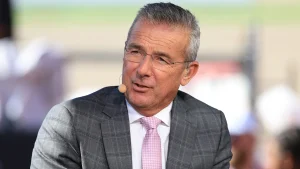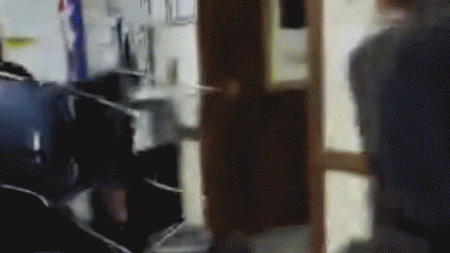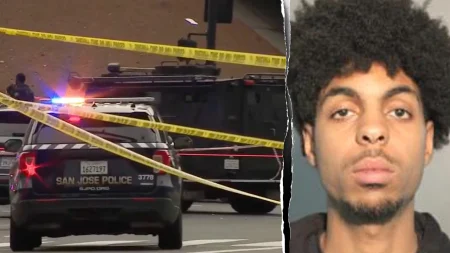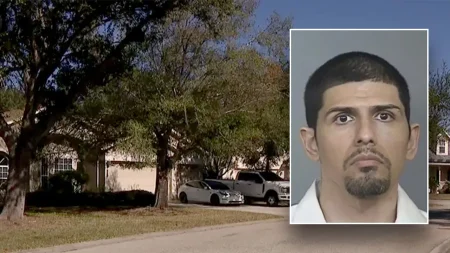Pope Leo XIV Discusses Limitations of Papal Mediation in Global Conflicts
Pontiff Emphasizes Role as Peace Advocate While Acknowledging Practical Constraints
In a candid assessment of the Vatican’s diplomatic capabilities, Pope Leo XIV recently clarified the distinction between advocacy and mediation in papal peace efforts, suggesting that while the papacy maintains its commitment to promoting global harmony, there are practical limitations to its role as a neutral mediator in complex international disputes.
Speaking to journalists during what observers described as an unusually forthright discussion on Vatican diplomacy, the Pope articulated a nuanced position on the Holy See’s involvement in conflict resolution. “The papacy has always stood as a moral voice for peace throughout history,” Pope Leo XIV stated during the address. “However, we must be honest about the realities of diplomatic engagement. While we can and must advocate tirelessly for peaceful solutions, it is less realistic to position ourselves as formal mediators in many situations.” This statement reflects a pragmatic assessment rarely expressed so explicitly by a pontiff, marking what Vatican analysts consider a significant clarification of the Church’s diplomatic self-understanding.
Historical Context: Vatican Diplomacy’s Evolving Role
The Pope’s remarks come against a backdrop of centuries of Vatican diplomatic engagement that has seen varying levels of direct intervention in conflicts. From the peace-brokering efforts of previous pontiffs during European wars to more recent attempts at facilitating dialogue in regional conflicts, the Holy See has maintained one of the world’s oldest diplomatic services. Historical precedent has shown both successes and limitations of papal intervention, with the Vatican’s unique position as both a religious authority and sovereign entity creating distinctive opportunities and challenges in international relations.
The current pontiff’s comments appear to acknowledge the changing landscape of global diplomacy, where complex multi-party conflicts often involve tangled religious, economic, and geopolitical dimensions that complicate the Vatican’s traditional diplomatic approach. “In today’s interconnected world, conflicts rarely have simple solutions or clear divisions,” explained Dr. Maria Castellani, professor of Vatican diplomatic history at Gregorian University in Rome. “Pope Leo XIV is recognizing that while the moral authority of the papacy remains significant, the technical and political aspects of formal mediation often require different types of institutional support and expertise than the Holy See typically provides.”
Practical Limitations and Strategic Focus
In elaborating on his position, Pope Leo XIV outlined several practical factors that can limit the effectiveness of direct papal mediation. Chief among these are the institutional constraints of the Vatican’s diplomatic corps, which, despite its global reach, lacks the scale and specialized resources of major international organizations or powerful nation-states. Additionally, the Pope noted that the Vatican’s distinctive moral and spiritual perspective—while valuable—sometimes positions it differently from purely political mediators who may operate with different priorities and methodologies.
“What the Pope appears to be doing is focusing the Vatican’s diplomatic efforts where they can be most effective,” commented Ambassador Thomas Reilly, former U.S. envoy to the Holy See. “By differentiating between advocacy and mediation, he’s acknowledging that moral suasion and behind-the-scenes diplomatic encouragement—areas where the papacy excels—differ from the technical process of mediating complex agreements. This doesn’t represent a retreat from engagement but rather a clarification of how papal influence can be most constructively applied.” This strategic focus may allow the Vatican to concentrate its diplomatic resources on humanitarian initiatives, interfaith dialogue, and moral leadership rather than attempting to replicate the mediation functions of other international bodies.
Implications for Current Global Conflicts
The timing of the Pope’s comments has particular relevance given the multiple ongoing conflicts where questions of potential Vatican involvement have been raised. From persistent violence in the Middle East to emerging tensions in various regions, observers have frequently looked to the Holy See as a potential neutral party. By clarifying the realistic scope of papal intervention, Pope Leo XIV appears to be managing expectations while simultaneously reaffirming the Church’s commitment to peace-building through appropriate channels.
Vatican Secretary of State Cardinal Giovanni Bianchi subsequently expanded on the Pope’s position, noting that “The Holy See continues to work through its diplomatic network and through direct moral appeals to encourage peaceful resolution of conflicts. What His Holiness is emphasizing is that this work often takes place outside the formal structures of mediation, operating instead through spiritual encouragement, discrete dialogue, and by consistently representing the humanitarian concerns that might otherwise be overlooked in purely political negotiations.” This approach, Cardinal Bianchi suggested, allows the Vatican to maintain its distinctive voice while recognizing the specialized nature of formal conflict mediation.
Future Direction of Papal Peace Initiatives
Despite the acknowledgment of limitations in formal mediation roles, Pope Leo XIV has signaled a continued commitment to evolving the Vatican’s peace-building efforts through other avenues. The pontiff has emphasized expanding interfaith initiatives that build religious understanding, humanitarian diplomacy that addresses the concrete suffering caused by conflicts, and continued moral leadership on issues ranging from refugee protection to disarmament. “The Church will never step back from its fundamental mission of promoting peace,” the Pope affirmed. “But we must be wise about how we channel our efforts to achieve maximum impact for the common good.”
Diplomatic observers suggest this articulation of the papacy’s role represents less a retreat than a strategic refocusing. “What we’re seeing is a pontiff who understands both the unique strengths and the practical limitations of Vatican diplomacy,” noted Dr. Elena Montoya, international relations specialist at Georgetown University. “By clarifying that advocacy rather than formal mediation represents the most realistic contribution in many situations, Pope Leo XIV is positioning the Holy See to play to its strengths—moral authority, long-term perspective, and freedom from narrow national interests—while avoiding overextension into roles where other entities might be better equipped.”
As global conflicts continue to challenge international institutions and test diplomatic frameworks, the Pope’s candid assessment offers both a realistic acknowledgment of constraints and a reaffirmation of the Vatican’s unique role in promoting peace through its distinctive moral and spiritual perspective—a contribution that, while different from formal mediation, remains vital in a fragmented global landscape.










